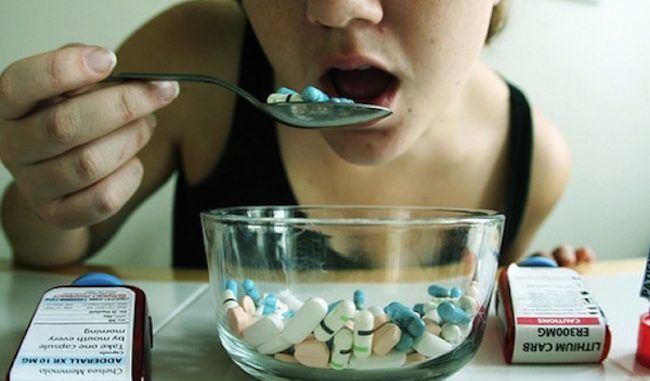
U.S. authorities are considering proposals by the United States Preventative Services Task Force (USPTF) to screen all teenagers in America for mental health problems – in what some are saying is a push to increase the prescription of psychiatric drugs among the population.
The USPTF recently updated their recommendations on the screening of children and teenagers for major depressive disorder (MDD) in an article in the journal Annals of Internal Medicine. They demand that children aged 12 and older be routinely screen for MDD.
Naturalnews.com reports:

BYPASS THE CENSORS
Sign up to get unfiltered news delivered straight to your inbox.
You can unsubscribe any time. By subscribing you agree to our Terms of Use
The USPSTF reviews scientific evidence about the benefits and harms of various preventive medical measures in people who have not been diagnosed with a particular illness. In this case, the task force reviewed evidence on screening children aged 7 and up for MDD. It did not find sufficient evidence to support screening children younger than 12, mostly because few studies have been conducted on this population.
“Adequate evidence” showed that screening is effective at detecting MDD in children aged 12 and up, the task force said. However, no studies had been performed to show that screening leads to improved health outcomes in this demographic; instead, the recommendation was based on “adequate evidence” that treatment of depression leads to “moderate benefit” in this age group.
The task force further reviewed evidence of harms from screening and various treatments for depression. No significant harms were found from screening, or from psychotherapy or psychosocial support as treatments. While acknowledging the risks of antidepressant drugs, the report attempts to downplay them: “Medications for the treatment of depression, such as selective serotonin reuptake inhibitors … have known harms. However, the magnitude of the harms of pharmacotherapy is small if patients are closely monitored, as recommended by the … FDA.”
“The USPSTF concludes with moderate certainty that screening for MDD in adolescents aged 12 to 18 years has a moderate net benefit,” the report concludes.
The USPTF has also previously recommended screening all adults for MDD.
But what are the real risks?
However well intentioned, it is likely that increased screening of adolescents for MDD will lead to more children being treated with dangerous drugs. That’s because although antidepressant drugs have been proven to be no more effective than a placebo – and both riskier and less effective than treatments such as talk therapy – they remain the treatment of choice for depression in the United States.
According to the U.S. Centers for Disease Control and Prevention (CDC), 11 percent of U.S. residents aged 12 and up already take antidepressants. Notably, only an estimated 7.6 percent of the population actually suffers from depression.
These figures reveal a fundamentally broken mental health system. For example, more than 60 percent of those on antidepressants have taken them for two or more years, while 14 percent have been taking them for 10 years or more. Yet, less than one-third of those taking a single antidepressant (and less than half of those taking more than one), have been to visit a mental health professional in the past year.
The USPTF recommendation also raises the specter of widespread screening for other mental health conditions, many of which have come under fire for being vague or even invented by the mental health profession.
“Psychiatry seems to have lost its way in a forest of poorly verified diagnoses and ineffectual medications,” Edward Shorter of the University of Toronto, who studies the history of psychiatry and medicine, has written.


We Need To Zap Them In The Eye With A Lazer ツ
Protect Children 24/7 ٩(●̮̮̃•)
We Need To Zap Them In The Eye With A Lazer ツ
Protect Children 24/7 ٩(●̮̮̃•)